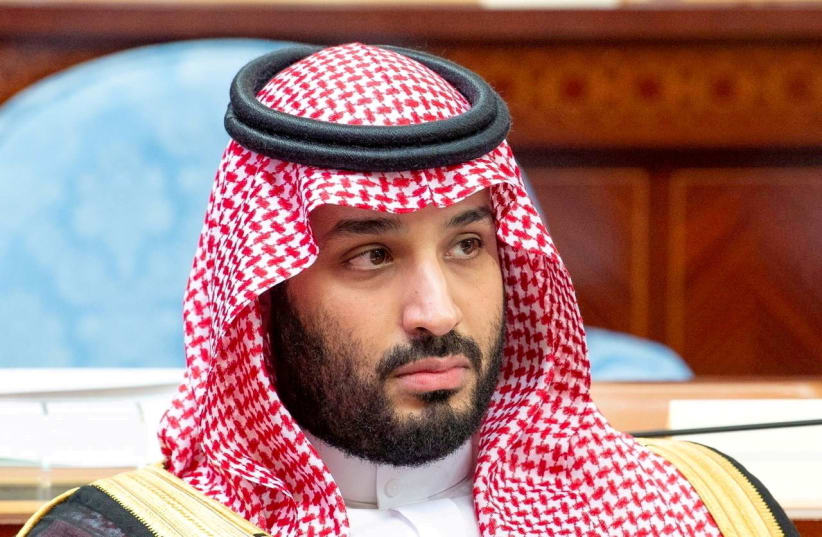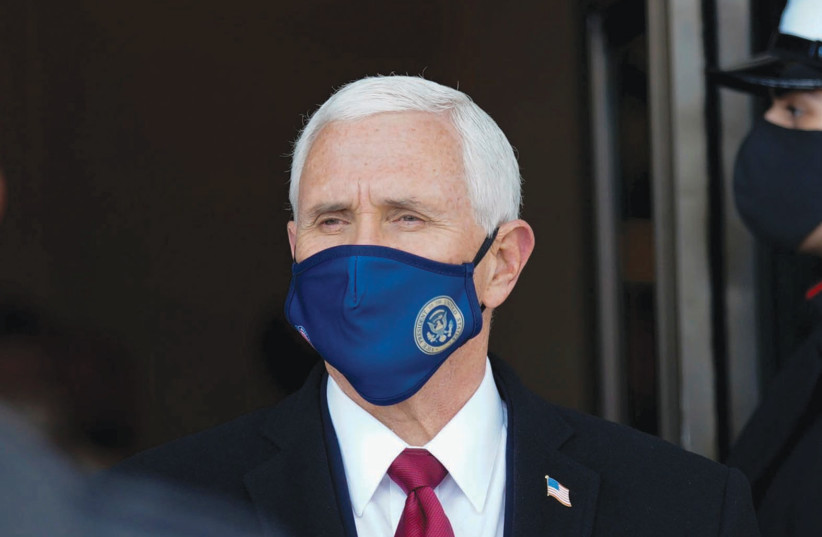Joel C. Rosenberg has many faces. He is best known, perhaps, as the author of a series of bestselling political thrillers, most of them set in the Middle East. He is also a policy analyst who seeks to influence public opinion through journalism, as a documentary filmmaker, and by direct contact with leaders and opinion-formers.
His name suggests that he is Jewish, but he describes himself as “a follower of Jesus Christ from a Jewish background.” Born to a Jewish father and a gentile mother, he is an Evangelical Christian who believes profoundly in the literal truth of both the Old and the New Testaments. High among the principles that govern his approach to the Middle East are the biblical injunctions to love Israel and her neighbors, and to be a peacemaker.In line with his principles, he and his wife left the US in 2014 and moved to Israel where he became a dual US-Israeli citizen. Two of his sons have done military service in the Israeli army.
For some twenty years, Rosenberg has been active in the political field. He has led ground-breaking Evangelical Christian delegations to Egypt, the United Arab Emirates and Saudi Arabia. He has spoken personally with Israel’s previous president, Reuben Rivlin, with Benjamin Netanyahu when prime minister, and with Jordan’s King Abdullah II, Egypt’s President Fatah el-Sisi, and the two Crown Princes who dominate the Middle East – Mohamed bin Zayed (MBZ) of the United Arab Emirates, and Mohammed bin Salman (MBS) of Saudi Arabia. He has had face-to-face conversations with then-president Donald Trump, and with his former vice-president, Mike Pence, and the previous secretary of state, Mike Pompeo.
Rosenberg says: “I can’t explain why doors to such intriguing leaders have opened for me,” but open they did. In Enemies and Allies he provides details of these encounters and of many more with US intelligence and security officials and others across the Middle East, and draws on them to make a clear-eyed assessment of the realities behind the chaos that is the Middle East in the first quarter of the 21st century. He uses them also to predict a possible future for the region.
Enemies and Allies is unlikely to commend itself to a large swath of US Democratic opinion, or to many powerful and persuasive figures in the European Union or the UK. It is doubtful if US President Joe Biden, or the president he served for eight years, Barack Obama, will concur with Rosenberg’s conclusions on the Iranian issue, which are way out of line with the widespread and influential body of opinion in the West that believes the way to prevent Iran obtaining a nuclear arsenal is through negotiation, financial concessions and the prospect of being welcomed into the so-called “comity of nations.”
Rosenberg believes Iran poses a threat like no other, because the West cannot – or will not – see that the Iranian leadership is working to its own unshakable Islamist agenda. These “apocalytpic Islamists” in his words, “want to use violence to try to annihilate the State of Israel, neutralize the United States, decimate Christendom, and hasten the establishment of their global Islamic kingdom and the coming of their savior, the Mahdi.”
A segment of Western opinion may also be dubious about his inclusion of Turkey and Iraq in the “enemy” category, or indeed of Saudi Arabia with his perceived “allies.” It may not share his unease at what he sees as an emerging collaborative axis between Russia, Turkey and Iran, especially in relation to producing a settlement in the Syrian civil war.
This sector of Western opinion is also likely to reject Rosenberg’s unalloyed commendation of the courage and wisdom of those responsible for initiating the Abraham Accords. He identifies them as Trump, Netanyahu and Sheikh Mohamed bin Zayed. The first such agreement, between Israel and the UAE, was brought to fruition against a very difficult background, with Netanyahu apparently on the brink of annexing large areas of the West Bank. “It almost did not happen,” writes Rosenberg. “But by the grace of God, the prayers of millions, and the leadership of three men and their closest advisors, it came to pass. For me, each absolutely deserved the Nobel Peace Prize.”
Based on his discussions with White House officials and US political leaders, Rosenberg lays bare the strategy behind Trump’s Israel-Palestine peace plan, the so-called “Deal of the Century,” and how it smoothed the path leading to the Accords.
Many senior officials told Rosenberg that while they had wanted to create the most detailed and realistic peace plan possible, they knew that the Palestinian leadership had no interest in a final deal. So they calculated that if they based their dealmaking on trying to get the Palestinians to say yes, the whole peace effort would be dead on arrival. But if they decided that one of their objectives was to expose Palestinian Authority President Mahmoud Abbas and his inner circle as perennial rejectionists of all peace proposals, however reasonable, their plan could pave the way to a normalization deal with at least one, and possibly several, Arab states.
Rosenberg had been given covert warning of this approach from a variety of sources. Pence told him that Trump had thrown out “the old playbook”; Pompeo said that Trump had chosen to “flip the switch” on Obama. White House peace negotiator Jason Greenblatt told him that Trump wanted his team to be “willing to think outside the box” and be able to persuade other leaders in the region to do the same.
“I don’t think we could have jumped from nothing to the Abraham Accords,” said Greenblatt. “I think that putting out a plan that we deemed realistic and implementable… was an essential step.” In fact, he added, “the Palestinians’ rejection of the plan… removed the “veto card” from the Palestinian leadership, and cleared the way for Arab countries to make their own decisions with regards to Israel.”
And indeed, as Rosenberg points out, “the Trump approach worked,” especially as the UAE agreement was quickly expanded to include Bahrain, Sudan and Morocco.
Joel Rosenberg has gained access to some of the world’s leading political figures and held in-depth discussions with them. In Enemies and Allies he generously shares his experiences. He takes his readers into the inner sanctum of high-level politics in the Middle East. We gain a unique insight into the thinking of world leaders, and rightly feel privileged to have done so. Whether one agrees or disagrees with Rosenberg’s conclusions, Enemies and Allies undoubtedly provides a degree of enlightenment not otherwise available. It is highly recommended.
Enemies and AlliesBy Joel C. RosenbergTyndale House Publishers400 pages; 26.99

